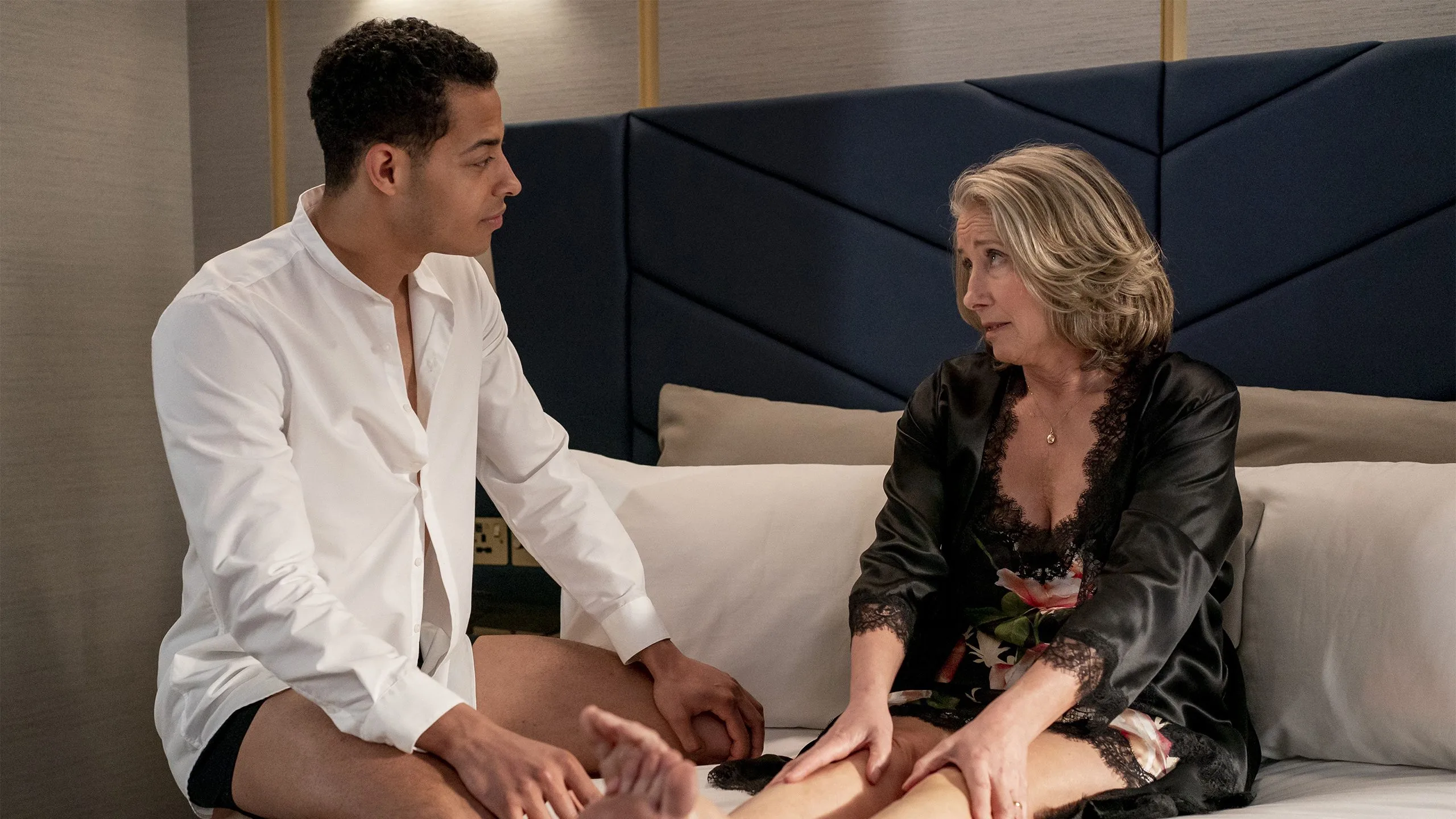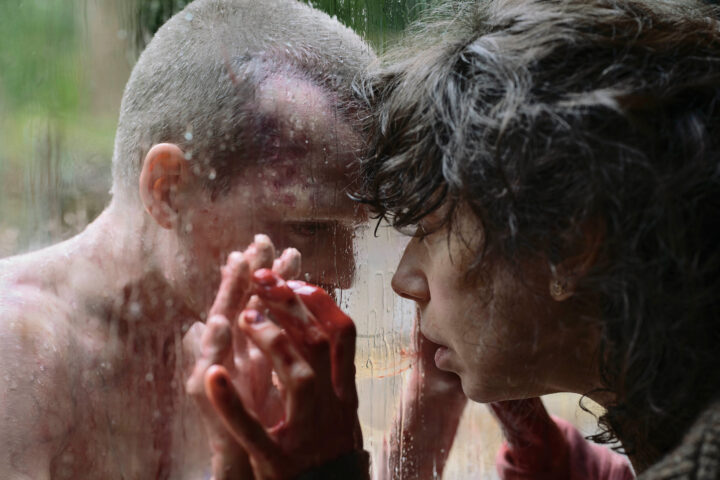An incisive, bold adult drama about aging and sexuality, Good Luck to You, Leo Grande finds Emma Thompson in top form as widowed former educator soliciting the services of a young sex worker in a bid toward enlightenment—initially a physical pursuit but ultimately yielding something far deeper.
In a two-hander of an actor’s exercise that to its credit never for a minute invites claustrophobia, Thompson is retired religious studies teacher Nancy Stokes, who two years after her husband’s premature death calls on the services of one Leo Grande (Daryl McCormack), a male escort tasked with schooling Nancy on the finer points of intimacy (or, pointedly, to fulfill a bucket list of sexual acts she’s never experienced during a lifetime of missed opportunity).
Yet it isn’t as simple as meeting in a hotel room and just going for it. Structured as four meetings over a trim 97 minutes, the couplings are contextualized in a series of rich conversations where Nancy (who has only ever been sexual with her deceased husband), alternately self-assured and deep reticent, is determined to achieve an ever elusive first orgasm.
The smoothly charming McCormack is Leo, the experienced sex worker who excels at connecting with clients and putting them at ease, yet himself harbors a hidden sadness. The film is clear in its reverence for both its actor and the services his character provides, here a much-needed therapy minus even a whiff of exploitation, refreshingly libertine in its celebration of Leo’s skills, counseling and vocation.
Leo finds himself privvy to much of Nancy’s life story, including a chastely sensual teenaged awakening, a lifetime of faked satisfaction with marital couplings and her disappointment with her young adult children. Thompson positively excels at the an internal push-pull tug between the humiliating absurdity of what Nancy is doing and her efforts to check though a list of sexual to-dos at a rapid clip; the film doesn’t offer explicit sex but rather each section requires significant “foreplay” chat before the episode’s intimacy. It’s a film not about the sex, per se, but about the self-reflections and recriminations that nudge conflicted Nancy to arrive at the film’s intimate moments.
With great self-effacement, biting wit and surprising tenderness, Thompson shares something that feels individual and private yet universal and the result can be euphoric to watch, providing her character with a masterfully comprehensive self-evaluation and reckoning, assisted by screenwriter Katy Brand and directed by Sophie Hyde to a moment-to-moment aliveness that is fully engaging, funny and wistful. It’s one of the year’s great performances (in good company with Everything Everywhere All at Once‘s Michelle Yeoh and the forthcoming To Leslie‘s Andrea Riseborough).
And McCormack, a great listener, is appealingly supple and confident, and as an actor he illuminates the notion of sex worker as confidant, listener ear and, yes, healer, which the actor completely sells in a magnetic performance, at once liberated, enervated and then, later, melancholy.
Good Luck to You, Leo Grande, is unexpectedly extraordinary on a number of fronts. To begin with, the movies have long since abandoned the notion of explorations of sexuality. For anyone paying attention, once-prevalent movie love scenes have nearly been eliminated, especially in America, in an era where actors are far more guarded and juvenile audiences would likely titter at nude scenes or send them viral with the snap of a cameraphone.
Some of cinema’s most sophisticated explorations of sexuality—think Carnal Knowledge, Last Tango in Paris, Y Tu Mama Tambien (and even the non-sophisticated, like the puerile 9 1/2 Weeks)—could never be made today in a climate of unease where acted passion must be supervised and choreographed by “intimacy coordinators” and in which infantilized multiplex hordes are more aroused by hollow CGI multiverses than any allusions to the human condition.
The picture also scores as a portrait of a middle-aged woman as a reluctant sexual being with physical desires and needs. When was the last time we saw that at the movies? Further, it presents the woman’s psychological life as fully developed and, courtesy of Thompson, graced with the summation of a lived-in life, the sort of funny-weary gravitas and contemplation that can make you chuckle and break your heart, sometimes in the same moment.
3 1/2 stars



